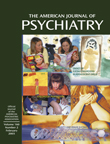To the Editor: We commend Ann A. Hohmann, Ph.D., M.P.H., and M. Katherine Shear, M.D.
(1), on their attention to important issues in translating efficacy research to real-life research in the community. We are completing a trial of community-based support-education groups for single mothers
(2), a population facing high poverty rates and an elevated risk of mental health problems, particularly depression. We considered similar issues before our trial. For example, we undertook feasibility work to determine appropriate identification and enlistment of study participants, adequate retention in groups, and acceptability and completion of evaluations. We contemplated the generalizability of the study setting, the similarity of the participants to those most in need, and the relevance of the outcome goals to the participants.
We wish to emphasize four specific issues arising from our trial. First, despite strong expressed community support for our trial, study recruitment is difficult. Readiness to change
(3) and engage in treatment activities appears to be much lower in the community than in clinical settings, where mothers have been mobilized to ask for help with specific problems. Clinic participants anticipate assessment questionnaires, but community participants do not have the same expectations and may be less ready to complete questionnaires. It is not clear if we attract those
most in need (most depressed? poorest?), but we attract mothers with expected sociodemographic and mental health characteristics who are ready to engage in the treatment process.
Second, we want to highlight the importance of the first contact with potential study participants. The person charged with engaging potential subjects must be able to describe the study in a clear, comprehensible manner and be inviting and encouraging. In our study, this person plays a critical role in reminding participants about group sessions and booking evaluations and has turned out to be a key person in both recruitment and maintenance.
Third, putting in place a standard outcome protocol is essential, but an openness to recognizing other relevant outcomes during the trial is important. We examine maternal well-being (mood, social support, self-esteem) and parenting—important outcomes to participants and those working with these mothers and their children. Preliminary qualitative results suggest that participating mothers may use the group as a stepping stone to other mainstream activities and services after participation. This was not identified as a relevant outcome at the outset but possibly constitutes one that is more important.
Fourth, the authors suggested that investigators undertaking community-based trials consider what is needed before continuing an intervention after the study if it is successful. This may be difficult to do in advance, since community research may provide model programs not easily replicated because of personnel or costs. Creating opportunities for academic-community partnerships may upgrade the relevance of academic studies and the scientific usefulness of community-based studies.

